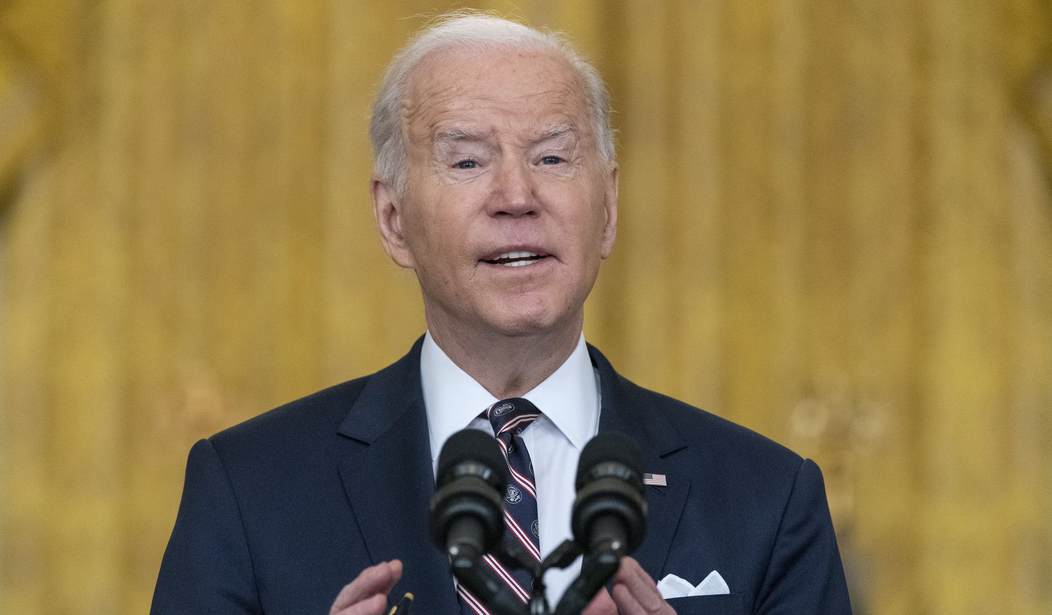As a testament to just how bad Joe Biden’s potential nuclear deal with Iran is, his efforts have received rare bipartisan criticism. This week, 18 House Democrats have expressed concerns about the secretive negotiations and whether Iran is making enough concessions.
“We understand that while the recent negotiations have not concluded, we feel that we can’t stay quiet about the unacceptable and deeply troubling turn that these results have reportedly taken,” Rep. Elaine Luria (D-Va.) told the media.
President Trump pulled us out of the deal, formally called the Joint Comprehensive Plan of Action, because Iran wasn’t adhering to its conditions. They never did.
Even Barack Obama, who touted the deal as a major foreign policy victory, admitted it wouldn’t stop Iran from getting a nuclear weapon but would only delay the inevitable. Sure enough, Iran violated the terms of the deal from the beginning. Three months after signing, Iran launched a ballistic missile test in violation of the same agreement.
By the spring of 2016, Iran had officially violated the terms of the nuclear deal and U.N. resolutions three times. That summer, German intelligence believed that Iran was attempting to acquire technology that could be used for its military nuclear program, again in violation of the deal. In November of 2016, the U.N.’s atomic watchdog, the International Atomic Energy Agency (IAEA), reported that Iran had, for the second time, exceeded a soft limit on sensitive material under the nuclear deal.
Joe Biden was vice president that entire time. He knows that Iran cannot be trusted, yet he made restoring the nuclear deal a key campaign promise and seems committed to seeing it through.
However, Biden’s commitment to cutting a deal with Iran and the process by which he set out to do so have raised many red flags within his own party, which has typically been united in support of his agenda.
“Any new agreement with Iran must be based on the situation that is on the ground today, not the one from seven years ago,” Rep. Grace Meng (D-N.Y.) said. “This means an agreement that is comprehensive and addresses the full range of threats that Iran poses to the region, including its nuclear program, ballistic missile program and its funding of terrorism.”
According to a recent report, Biden’s nuclear deal was likely to include a provision to remove the Islamic Revolutionary Guards Corps (IRGC) from the U.S. designated terrorist list, thus allowing Iranian nationals linked to the group to enter and stay in the United States.
It seems that bipartisan opposition has prompted the Biden administration to, for now, refuse to make this concession to Iran.
Biden’s Secretary of State Antony Blinken told NBC News’ Andrea Mitchell earlier this week that he agrees that the IRGC is a terrorist organization — a stunning admission, considering it was President Trump who put them on the list — and members of Congress on both sides of the aisle agree.
While it’s clear that Joe Biden has no intention of taking a new agreement with Iran to the Senate for ratification, Blinken says he’s not “overly optimistic” that the new nuclear deal will be finalized.
For Our VIPs: Russian Companies, Able to Avoid Sanctions, Thanks to Biden, Will Make Billions From New Iran Nuclear Deal
The administration still isn’t giving up on reaching an agreement. Unfortunately, nothing will ultimately stop Iran’s nuclear ambitions regardless of what a final deal looks like. Iran will likely violate the terms of the new agreement just like they did with the old one.
Biden may be doing something good by not conceding on the IRGC, but he’s still pursuing a deal that will inevitably fail to contain Iran.










